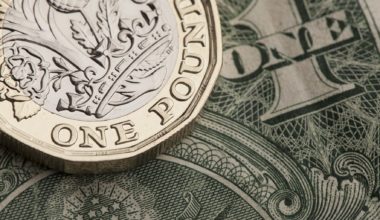Political turmoil and an increasingly divided society. Rising crime levels in major cities, life expectancies declining, higher levels of drug addiction. Ballooning levels of government debt and money printing to fund its obligations at home and abroad.
The current state of affairs in the United States is challenging to say the very least.
At the same time China continues its rise as an economic and military superpower, its influence around the world growing.
The domestic political and economic challenges facing the United States today, combined with the emergence of a major challenger in the form of China, have led many to take the view that America is going through a period of relative decline. Its position as the pre-eminent economic, political, military, and cultural superpower will be steadily eroded and replaced as its society and economy underperform a resurgent China. Some are even suggesting we could see a civil war in the United States and a collapse of the US dollar as the world’s reserve currency.
Pretty worrying stuff if you own US assets in your portfolio!
We believe very strongly that not only is this idea of America’s decline premature, it is just plain wrong and, what’s more, believing it is a major risk to your investment returns.
When making portfolio allocation decisions, a belief that the United States is in terminal decline might very likely lead an investor to reduce or even completely remove exposure to (for example) US equities from their investment portfolio. If America is on the path to economic stagnation, or worse, why own US assets?
To take our thinking on this issue a step further, not only do we think this narrative of American decline is wrong, we believe that ‘peak America’, the greatest period of American innovation, dynamism, economic prowess, this is ahead of us.
Much to the chagrin of many European intellectuals (and Ray Dalio) the United States of the 2030s and 2040s, we argue, is likely to be an even more dominant force in the global economy. Rather than being replaced by the emergence of new major global powers like China, India, and eventually regions like West Africa, these new powers will compliment and reenforce America’s position in the world.
How can we be so confident in taking this view? What basis do we have to take such a strong view about the future, when the future is so uncertain?
As long-term investors, we spend a lot of time looking deep into the future to try and assess how to position portfolios and investments, focussing as much as possible on the dynamics of long-term trends and avoiding, as much as possible, being biased by short-term news flow and volatility.
As part of our research process, we also turn our long-term gaze backwards to the past. The past is a data rich, helpful guide to understanding the present and the future.
This is a good point to introduce the concept of fragile and anti-fragile systems. Developed by the mathematician and investor Nassim Taleb, a fragile system is one which suffers greatly from small levels of change in its environment. A ceramic vase quite literally is a fragile system because it experiences catastrophic effects to its structure from a small change in environment, a child pushing it over for example. Some companies or even governments are fragile. Small changes, a political uprising for example, or a new competitor with a high-quality product, are all it takes for an entire collapse in their systems (much like the ceramic vase).
An anti-fragile system is the exact opposite. This is a system that is strengthened by stress and change. A good example is safety standards in commercial air travel. Every time there is an accident, a plane crashes or skids off the runway, the investigation leads to learnings which are used to improve the safety of all other current and future aircraft. Taking a flight today is thousands of times safer vs. taking a flight in the 1970s, precisely because that system is anti-fragile, stresses, change and volatility (in the form of aircraft crashing) re-enforced and strengthened the system, with exponentially positive outcomes for passenger safety.
Dictatorships often appear to be robust structures. Very far from fragile. If we look at China today under the rule of the Chinese Communist Party, many would laugh if you called it a ‘fragile system’. But the truth is, behind the seemingly powerful façade of macho leadership, extravagant military displays, is a fundamentally weak and fragile structure which can break very suddenly.
The track record of systems like China’s is terrible! The 20th century is a graveyard of dictatorships and autocracies who either collapsed, were overthrown, or were defeated on the battlefield by democracies. Imperial Germany, then Nazi Germany, Imperial Japan, the Soviet Union, the military Juntas of Argentina and Brazil. It’s easy to forget that Spain and Portugal were fascist dictatorships until very recently. Both have only been democracies for 40-50 years. Eastern Europe for even less time.
What’s more, and this is where we claim democracies have elements of anti-fragility, many former dictatorships, in some cases sworn enemies of democracies, are today successful democratic nations and very close allies of the United States.
It’s an incredibly powerful system that can turn former enemies into close voluntary allies! We’d like to see China under the communist party pull that one off. Vladimir Putin in Russia… yeah right.
But America has done this with two of the world’s formerly most powerful dictatorships. Japan and Germany (almost) turned the world into a global military dictatorship. America defeated both, dropping nuclear weapons on one of them, yet today Japan and Germany are two of America’s closest allies. Again, we hate to belabour the point, but we’d like to see China pull that off. We would not bet on it.
Further, after having listed just a few of the long list of failed dictatorships of the past century, how many large democracies can you name that have collapsed in the past 100 years? There are no examples.
Let’s take our thinking one step further and focus on the United States and why we think it is an anti-fragile system, a system which is strengthened by stress and volatility. In the past 200 years, the world’s most powerful and successful democracy, the United States, had a full-blown civil war, the bloodiest conflict in the country’s history. More Americans died fighting other Americans from 1861 to 1865 (the US Civil War), than died in either World War I or World War II.
Yet, within 40 years of the end of the US Civil War, the United States was a united country, had ended slavery, and had become the world’s largest economy. Within 80 years of the end of that conflict, America was the undisputed global hegemon, dominant in economy, culture, politics, and military power. This does not sound like a fragile system to us, this sounds like a system that is strengthened by stresses, even big ones like political division and war, a country with an incredible capacity for re-invention, for renewal, and for progression, especially during the tough times.
The past decade of political division, economic stress, pandemic, Trump, Biden, potentially Trump again, the rise of China, undoubtedly these are concerning and should be followed closely. But to conclude from this very short period of relative turmoil that America now faces imminent decline is, by historical standards, ridiculous.
Think of the technological marvels that have changed your life over the past 20 years… the iPhone and launch of smartphones, the internet, increasingly powerful and affordable computers. The recent launch of ChatGPT and large language models which will like change our lives very soon. These technologies are not emerging from China, let alone Russia, or India, not even from Europe (increasingly trending towards becoming an open-air museum). All (literally all) of the major technological breakthroughs of the past 20 years and even the latest ones are coming directly from America, or from closely aligned democracies (Israel, the UK, Germany). China’s covid vaccine doesn’t even work.
The United States today, despite the headwinds it faces, remains the global centre for innovation, technological development, cultural direction, and political power. The stresses it faces today will strengthen it, while (eventually) the stresses China faces will bring down its fragile system of government, just like every dictatorship before it. We’re bullish on the democratic, US-aligned China that emerges after that!
We’re highly confident underweighting US equities in portfolios (or even cutting them completely, which some investors are doing!) is a major mistake. The takeaway for investors, over the long-term, is that you must own US equities! Underweighting US equities would have been a terrible decision over the past 100 years, especially so during past times of crisis for the United States (of which there have been many, and after which every time America came out stronger).
Long-term, we’re bullish on America, we’re bullish American stocks, and we think you should be too.
Disclaimer: The views expressed in this article are those of the author at the date of publication and not necessarily those of Dominion Capital Strategies Limited or its related companies. The content of this article is not intended as investment advice and will not be updated after publication. Images, video, quotations from literature and any such material which may be subject to copyright is reproduced in whole or in part in this article on the basis of Fair use as applied to news reporting and journalistic comment on events.


